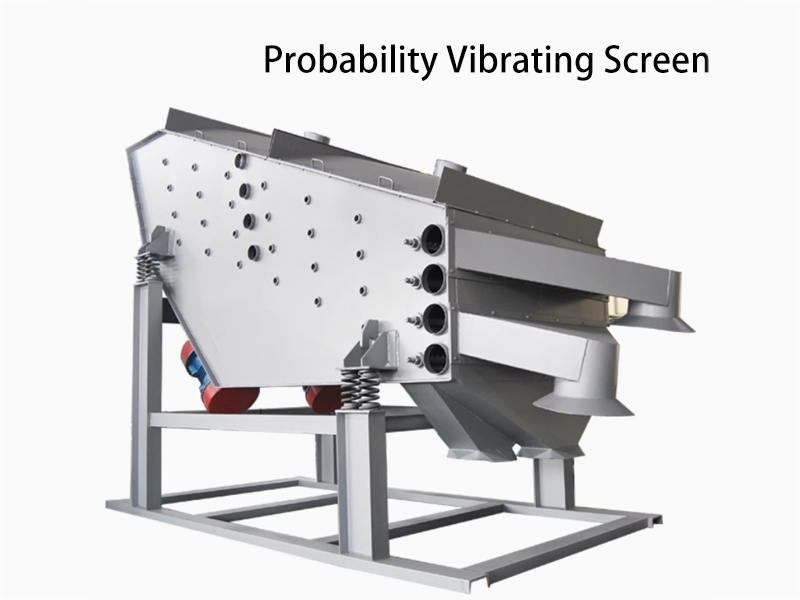Key points of improving screening efficiency of GLS-1020 probability vibrating screen.
Post Date: 2025-02-06
The probability vibrating screen operates based on the probability screening principle, where finer particles have a higher chance of passing through the screen mesh. The probability vibrating screen is specifically designed to handle fine and ultra-fine materials efficiently. However, achieving optimal screening efficiency requires careful control of various parameters.

Key Factors Affecting Screening Efficiency
1、Screen Mesh Selection and Optimization
- Aperture Size and Material: Choosing the appropriate mesh size ensures effective separation. A mesh that is too small may cause clogging, while a large mesh may reduce precision.
- Mesh Material: Stainless steel or polyurethane meshes are preferred for durability and reduced wear.
- Screen Tensioning: Properly tensioned screens prevent sagging and clogging, improving throughput.
2、Vibration Parameters Adjustment
- Amplitude and Frequency: The optimal amplitude (typically 4-6mm) and vibration frequency (12-20Hz) must be adjusted according to material characteristics.
- Inclination Angle: Adjusting the inclination between 5-10 degrees can balance screening efficiency and throughput.
- Vibration Mode: Utilizing linear and elliptical vibration patterns can enhance material stratification and separation.
3、Feed Rate and Material Distribution
- Consistent Feed Rate: Overloading the screen can reduce efficiency, while an insufficient feed rate may cause uneven screening.
- Uniform Material Distribution: Ensuring even material spread across the screen surface maximizes utilization of the screening area.
4、Anti-Clogging Mechanisms
- Ultrasonic Cleaning System: Implementing ultrasonic waves helps prevent screen blinding, especially for fine powders.
- Ball Decks or Cleaning Brushes: These mechanisms can help dislodge trapped particles and maintain screening efficiency.
5、Maintenance and Operational Best Practices
- Regular Inspection: Periodic checks of screen tension, vibration motors, and bearings help maintain consistent performance.
- Proper Lubrication: Ensuring all moving parts are well-lubricated reduces wear and prolongs equipment lifespan.
- Timely Replacement of Worn Components: Damaged meshes and vibration components should be replaced to prevent efficiency loss.

